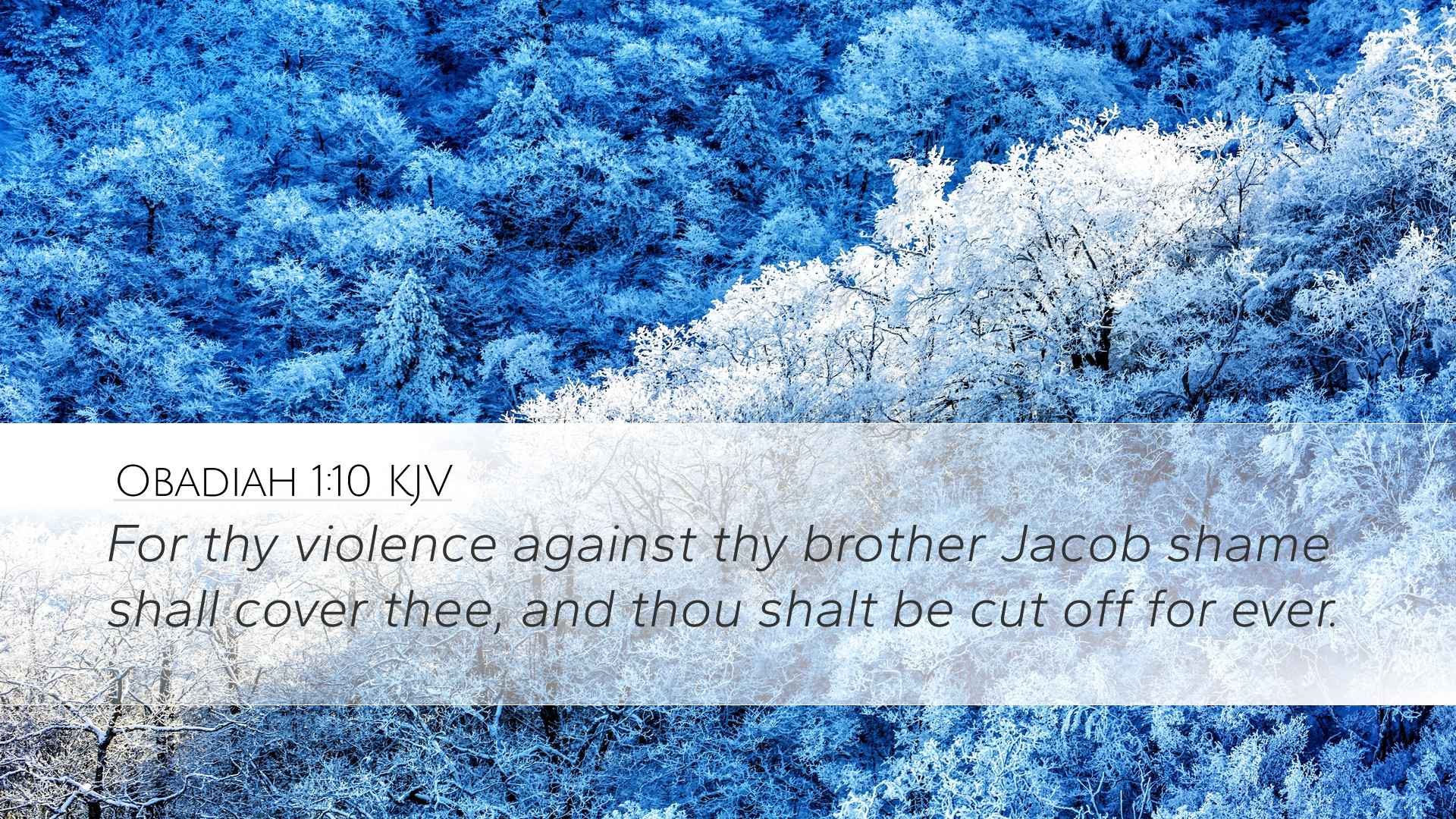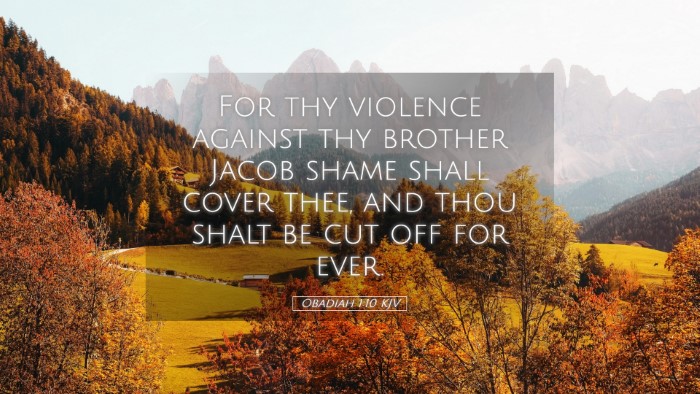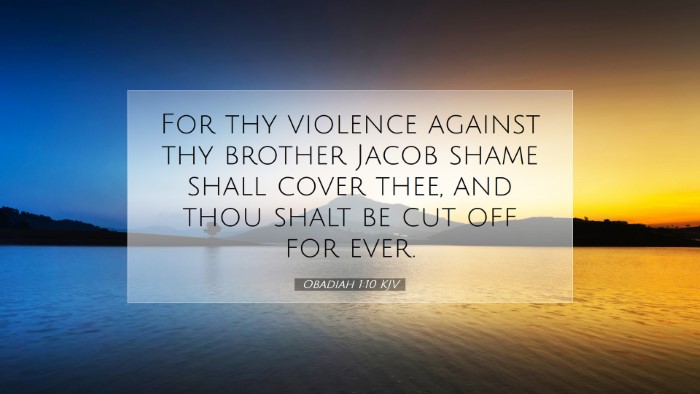Commentary on Obadiah 1:10
The book of Obadiah presents a profound message of judgment against Edom for its pride and violence against Jacob. In this commentary, we explore the insights from several public domain sources, including those from Matthew Henry, Albert Barnes, and Adam Clarke, providing a comprehensive understanding of Obadiah 1:10.
Text of Obadiah 1:10
"For thy violence against thy brother Jacob shame shall cover thee, and thou shalt be cut off for ever."
Contextual Background
The prophet Obadiah focuses on Edom's treachery towards Israel, particularly during the Babylonian invasions. Understanding the historical backdrop is essential to grasping the implications of this verse within the wider narrative of scripture.
- Obadiah is the shortest book in the Old Testament, consisting of only one chapter.
- The Edomites were descendants of Esau, while the Israelites descended from Jacob. This familial relationship highlights the gravity of Edom's actions.
- At the time of the fall of Jerusalem, Edom not only stood by but actively participated in the persecution and misfortune of the Israelites.
Exegesis of Obadiah 1:10
This verse articulates the core message of divine retribution against Edom. The "violence" mentioned is not merely physical aggression; it denotes a profound betrayal and hostility that pierce the very fabric of brotherhood.
Insights from Matthew Henry
Matthew Henry notes that violence against one's brother is particularly heinous in the sight of God. This violence, both in thought and deed, leads to shame and disgrace. Henry emphasizes that the punishment for Edom's pride and cruelty is severe, as they will "be cut off forever." This divine judgment serves as a reminder of the high calling to love and protect one's neighbor, particularly those within the covenant community.
Insights from Albert Barnes
Albert Barnes extensively remarks on the implications of shame mentioned in the passage. He asserts that the shame covering Edom reflects not only their moral failure but also a loss of honor among the nations. Barnes highlights that God's retribution is as certain as it is just, and he encourages a careful reflection on the principle that those who harm God’s chosen people will face dire consequences. Barnes concludes with a call to humility and repentance, cautioning against the pride that leads to downfall.
Insights from Adam Clarke
Adam Clarke's commentary underscores the generational impact of Edom's actions. Clarke elucidates that the phrase "cut off forever" signifies a complete and utter destruction that would serve as a warning to future generations. Clarke adds that God does not hold back in executing justice; the consequences are eternal. He invites readers to reflect on their own relationships, urging a commitment to forgiveness and reconciliation, contrasting the fate of Edom with that of the faithful.
Theological Implications
This verse raises significant theological discussions regarding judgment, mercy, and the nature of brotherhood in the light of God’s covenant. It stands as a testament to God's justice while calling believers to remember their commitment to love and support one another, especially in the face of adversity.
- The Nature of Sin: Edom's actions exemplify how sin can manifest in relationships, especially within families and communities.
- Divine Justice: God's judgment is certain and serves as a reminder that He actively protects His covenant community.
- The Call to Unity: The passage encourages believers to prioritize unity and care among the people of God, resisting actions that might lead to familial strife.
Practical Applications
For pastors, students, and theologians, this verse is a rich source for preaching and teaching about the importance of community, redemption, and repentance. It serves as a poignant reminder of how negatively our actions can affect our relationships, both with God and with others.
- Consider the ways in which we might act like Edom in our relationships—stand by when we should help, or even contribute to the suffering of others.
- Encourage congregations to foster environments of support and love, reflecting the character of God in their interactions.
- Use the certainty of God’s judgment as a means to motivate followers toward humility and empathy in their dealings with one another.
Conclusion
Obadiah 1:10 stands as a powerful reminder of the consequences of violence and betrayal among individuals and nations. The insights drawn from respected commentaries illuminate our understanding of the text and challenge us to live in ways that honor God and support those around us. Through the lens of this verse, may we search our hearts and strive to embody the love and grace that God has extended to us.


